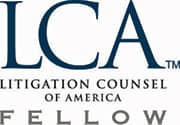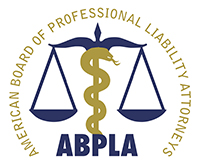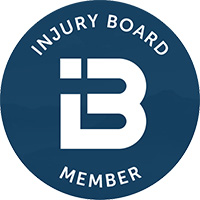
Can Forceps Delivery Cause Birth Injuries?
A forceps delivery involves the use of forceps to assist a baby through the birth canal during labor and delivery. Resembling long spoons or tongs, forceps are inserted into the vaginal canal and positioned on either side of the baby’s head, then used to guide the baby out of the birth canal.
When used according to the standard of care, forceps may help deliver babies quickly and unharmed. However, when used improperly, forceps can cause extensive and permanent damage, resulting in a range of potential birth injuries.
The experienced birth injury lawyers at Mandell, Boisclair & Mandell, Ltd have substantial knowledge in cases involving forceps deliveries. We understand the complexities of these difficult cases and we are prepared to effectively pursue the justice and compensation you and your family need to move forward.
How Can a Forceps Delivery Injure a Child?
The use of forceps and vacuum extractions in deliveries can lead to high rates of trauma for both the child and mother. Forceps deliveries can result in a number of birth injuries to the child, such as:
- Cerebral Palsy
- Erb’s Palsy
- Brachial Plexus Palsy
- Traumatic brain injury
- Shoulder dystocia
- Skull fracture
- Seizures
- External eye trauma
- Facial paralysis due to nerve damage
- Facial injuries, lacerations, and disfigurement
When Are Forceps Used In Delivery?
The use of forceps during delivery has declined significantly in the U.S. since 1990. During that year, slightly more than five percent of all U.S. deliveries involved the use of forceps. According to recent data, forceps deliveries dropped to 0.5% of all deliveries by 2017. This decline in forceps use is partly due to an increase in C-sections, in addition to the rising awareness of the risks involved with forceps deliveries.
There are certain situations in which a doctor may consider using forceps during delivery. For example, if the mother’s membranes have ruptured, the cervix is fully dilated, and the baby has descended into the birth canal.
When Should Forceps Not Be Used?
A doctor may choose to avoid the use of forceps during labor or delivery for a variety of reasons, such as:
- The baby is too high in the birth canal and has not descended enough
- The baby’s arm or shoulder proceed the head
- The baby is positioned incorrectly
- The baby has a condition that affects bone strength
When Does a Forceps Delivery Constitute Medical Negligence?
Even if all of the criteria for using forceps during delivery are met, they must still be used correctly. Doctors must be careful in how they place the tongs. If the forceps are used with excessive force or are placed improperly on the baby’s head, the strain on the child’s head could cause intracranial hemorrhages, brain swelling, tearing of vessels in the brain, or skull fractures.
It is crucial for babies to be closely monitored during labor and delivery. Forceps deliveries are only appropriate when obstetrical indications are present. It is essential that the physician performing the procedure is highly skilled in the delivery technique and closely follows the standard of care. If the doctor fails to follow guidelines and standards of care, you may have grounds to file a medical malpractice claim.
If your child was injured during a forceps-assisted delivery, it is in your best interests to contact an experienced birth injury lawyer as soon as possible to discuss your rights and legal options. An attorney can assess the facts in your case to determine if a medical professional or institution acted negligently during the labor and delivery process. If negligence occurred, you may be able to pursue compensation for your losses.
Contact Our Providence Birth Injury Lawyers Today
If a doctor was negligent when using forceps, the subsequent injuries can cause lifelong physical, cognitive, psychological, and financial hardships. When medical professionals use forceps negligently during delivery, they can – and should – be held accountable. Mandell, Boisclair & Mandell, Ltd can help.
See what our clients say about us.
Contact our experienced birth injury lawyers today online or at 401-273-8330 for a free initial consultation. Our firm proudly serves clients in Providence and other areas in Rhode Island.





























